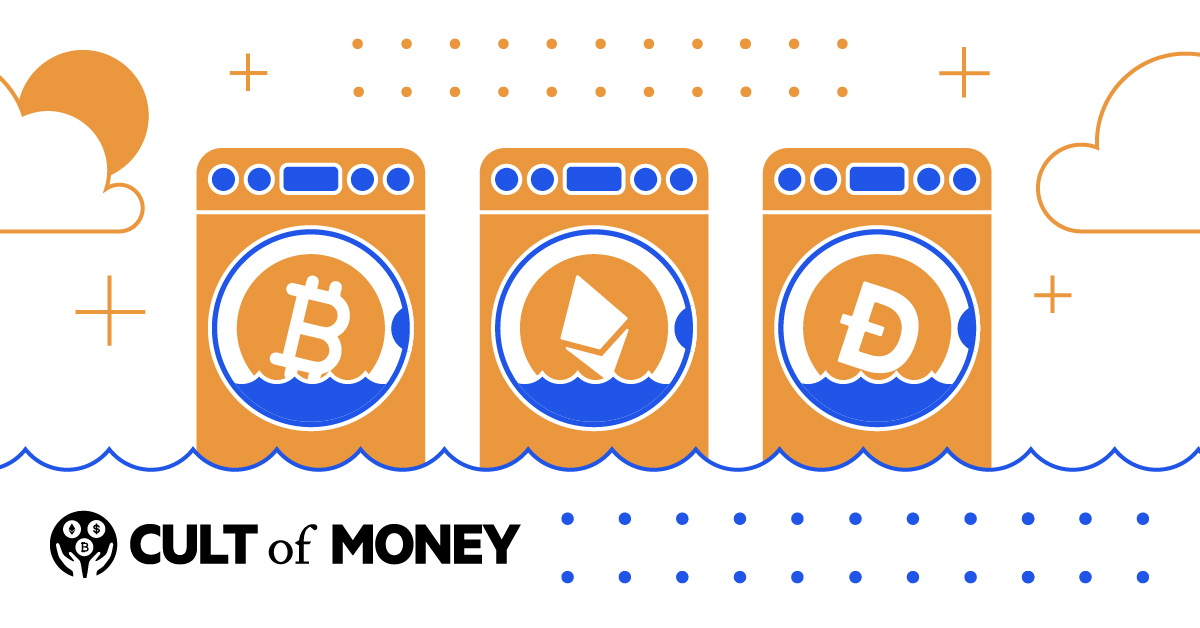
Crypto assets are getting a lot of publicity recently, even with the warnings of impending crypto winter.
With all of these recent losses, some investors might be interested in claiming some tax losses — and then re-buying the assets at lower prices in the hopes that cryptocurrency prices will recover.
This is a process sometimes referred to as “washing.” Here’s why it works on cryptocurrencies, even if it might not work on any securities that you hold.
What Is The IRS Wash Sale Rule
First of all, if you want to get involved with crypto washing, you need to understand the IRS wash sale rule.
According to the IRS, if you sell a security at a loss, you have to wait at least 30 days to buy it back if you want to claim the loss as a deduction on your taxes. If you sell a security at a loss and then buy it back inside that 30-day time limit, it’s called a wash sale.
This rule is designed to keep investors from selling a security, taking a significant loss for a tax deduction, and then buying back the asset immediately at a lower price. The idea is to log the loss and then use that money to purchase shares at a low price and see bigger gains later.
Wash Sale Rule And Cryptocurrency
One of the reasons that cryptocurrency investors can benefit from washing their assets is because the IRS wash sale rule doesn’t apply to them.
So far, the IRS has labeled cryptocurrencies as property — not securities. Because of that, the wash sale rule doesn’t apply. You can sell your crypto at a loss and still claim that loss on your tax return. Then, it’s possible to turn around and buy the same coin back at a lower price while not voiding your tax loss.
This makes tax loss harvesting with cryptocurrencies easier than managing tax loss harvesting with stocks.
Taking Advantage Of Your Crypto Losses
Right now, cryptocurrencies are below their recent highs. A lot below their recent highs. If you had a fair amount in crypto and your portfolio is down, you could benefit.
First of all, if you earned from crypto earlier in the year, and took those gains, selling now, while the market is down, can offset some of your gains. Next, if you have bigger losses than gains, up to $3,000 of those losses can be deducted from your earned income. Finally, any additional losses in excess of what you use to offset gains or income can be carried forward to another year. This is a powerful way to use the current crypto downturn to your advantage.
Here’s an example:
Let’s say you sold some crypto earlier in the year and saw a gain of $8,000. Normally, especially if these are short-term gains, you’d have to pay taxes at your regular marginal tax rate.
Today, though, with the bloodbath that is the cryptocurrency market, you might decide to unload some coins. Perhaps you end up with $15,000 in losses. Your first step is to offset your gains from earlier this year. Now, you no longer owe taxes on that $8,000. You also have $7,000 more in losses you can use to your advantage.
This year, you can use $3,000 of those losses to reduce your taxable income. There’s still $4,000 leftover that you can carry forward to next year. If you don’t have any capital gains next year to offset, you can simply take $3,000 more and deduct it from your income. You still have $1,000 in losses to carry forward into the following year.
Racking up losses doesn’t sound like a lot of fun, but it can be one way to turn the current climate to your financial advantage.
Washing Your Crypto
Now, because you don’t have to worry about the wash sale rule, you can simply just buy the same token back again. If part of your loss was selling $6,000 in ETH, you can turn around and immediately buy that ETH. You have $6,000 in ETH, but you bought it at a lower price.
If the cryptocurrency market rebounds, you have the assets — but you were able to get them at a low price. This can result in bigger profits later. Plus, if you have carryover from your loss harvesting, you can use that loss to offset realized gains from your most recent sale.
That’s right. Washing your crypto basically results in you being able to take your losses when the market is down for a tax benefit, then re-invest. Later, if you have those realized losses available to you, it’s possible to use them to offset your future gains.
By following this process, you have the chance to make money and reduce your tax liability at the same time. Consider consulting with a tax professional knowledgeable in crypto issues before moving forward, however. You want to make sure everything is recorded properly and that you have the information you need to make this work.
Will You Always Be Able To Do This?
Probably not.
Before you commit to using this as a long-term strategy, however, it’s important to be aware of the regulatory risk involved. While the IRS currently classifies cryptocurrencies as property rather than securities, that might not always be the case.
There isn’t a lot of regulation around crypto, and there’s a lot of uncertainty around where the framework will land. Right now, the SEC is in the middle of a lawsuit with Ripple, claiming that essentially XRP is a security. On top of that, the SEC is looking into a Coinbase employee for insider trading related to tokens listed on the exchange.
The SEC ruled in the past that Bitcoin and Ethereum are not securities, but it hasn’t ruled on other cryptocurrencies. Indeed, depending on the outcomes of the current actions, some cryptocurrencies might be considered securities while others aren’t seen as such. The IRS could change its guidance at any time.
As a result, you might decide to try washing your currency now, only to find out that, by the end of the year, the IRS has issued new guidance. That would make your current attempt at tax loss harvesting null and void. Understanding that possibility is key to taking steps to mitigate the risk that you end up in a different situation.
An Alternative
If you aren’t sure whether it makes sense to wash your crypto in this way, there is an alternative. Because there are many cryptocurrencies, there are some that tend to move together. By purchasing a different coin and holding it for 30 days and then trading it for your preferred coin, you can avoid a wash sale, should the rule be applied to cryptocurrencies.
For example, perhaps you decided to sell some Bitcoin during this loss. Rather than immediately buying BTC after harvesting your losses, you might decide to buy Bitcoin Cash with the proceeds. Bitcoin Cash moves almost in lock-step with Bitcoin, so if Bitcoin heads higher, there’s a good chance that BCH will as well. This gives you a chance to capture some gains without falling afoul of the wash sale rule.
The downside, of course, is that when you decide to sell your BCH at a profit once the 30 days have passed, BTC could also be higher. However, you’re probably still likely to be getting in at a reasonably low price, and you still have your profits from BCH — which will be offset by your original losses.
This strategy only applies if you think that the IRS will reclassify cryptocurrencies in the same tax year that you’re trying to wash your crypto. If you think that it will take longer for the IRS to regulate cryptocurrencies more like securities, then there’s no reason to employ this approach.
Bottom Line
Even though it’s never fun to see your portfolio fall, there are ways you can take advantage of falling prices. One of those ways is through tax loss harvesting. When you sell at a loss, you can use those losses to offset capital gains or even reduce your taxable income. Plus, once you log those losses, you can “wash” your crypto by buying it immediately at a lower price and taking advantage of gains later.
Just be aware of the situation, and know that the IRS can adjust its guidance at any time, so consider the risks involved.

Miranda Marquit, MBA, has been covering personal finance, investing and business topics for more than 15 years, and covering crypto topics for more than 10 years. She has contributed to numerous outlets, including NPR, Marketwatch, U.S. News & World Report and HuffPost. She is an avid podcaster, co-hosting the podcast at Money Talks News. Miranda lives in Idaho, where she enjoys spending time with her son playing board games, travel and the outdoors.
